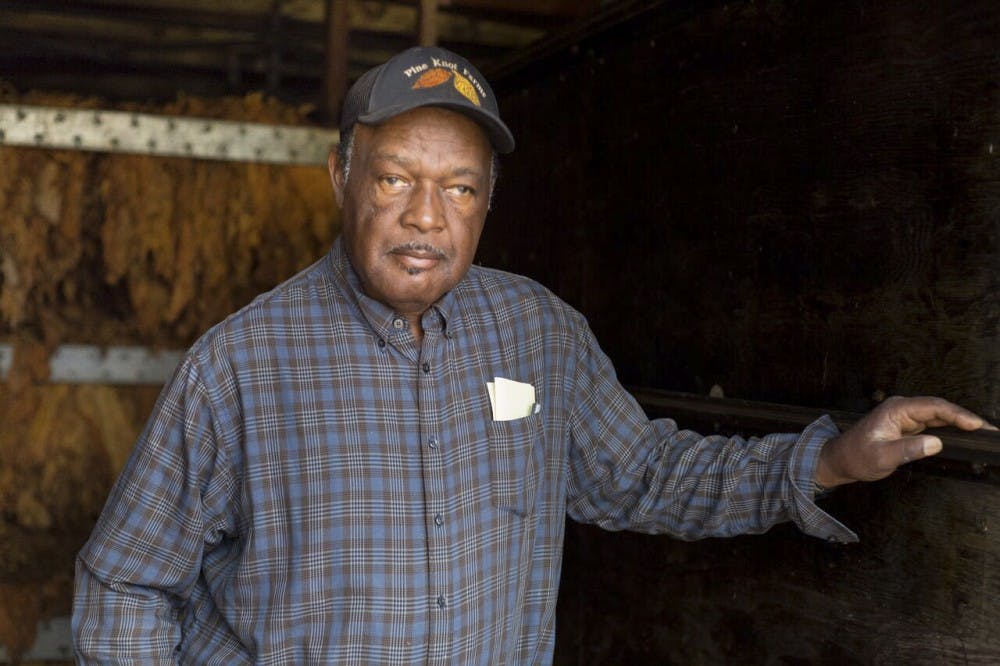As the number of American adults who smoke has declined steadily over the last five decades, the nature of tobacco farming has shifted from smaller, family-owned operations across the state to large-scale farms concentrated in eastern North Carolina.
Stanley Hughes, a tobacco farmer and owner of Pine Knot Farms, which is just north of Hillsborough, said the automation techniques employed by these larger farms are expensive, but they allow for a significant increase in tobacco yield to compensate for lower tobacco prices.
“These larger farms put in different kinds of automation that eliminate extra labor, and they can grow more,” Hughes said. “I don’t want to be in that kind of financial bind because you have to have more money to do all of that.”
Rather than expanding and potentially going into debt, Hughes has found new ways to reinvent his farm by rotating out various crops and switching to organic tobacco and produce. This allows him to take advantage of different markets, as well as sell his goods for higher prices to match the “organic” label.
“I’ve switched to other crops and have been able to grow more using some mechanical automation,” Hughes said. “We do crop rotation where we will plant tobacco, then come back later and grow some sweet potato and wheat.”
Pine Knot Farms covers roughly 125 acres, 30 of which are devoted to tobacco. The farm is expected to see an increase in tobacco yield this harvest season, Hughes said.
Many non-tobacco farmers in the county have also diversified their crops in order to garner a larger profit from their land.
Ben Grimes, owner of Dawnbreaker Farms, said his farm uses an operation that accommodates many livestock species and produce.




